German Paratrooper Gravity Knife -
Fallschirmjager, from the German Fallschirm "parachute" and Jäger "riflemen", are
German paratroopers.
During World War II, were the first to be committed in large-scale airborne
operations. They came to be known as the "Green Devils" by the Allied forces. The commander of
these forces was Kurt Student.
Advances in the development of aircraft gave birth to this new form of warfare. This required
new advancements in equipment to meet the demands of the missions. Part of the new technology
included the gravity knife.
This is a German paratrooper gravity knife. The design of this wepon consisted of a wooden handle
with a metal frame. The blade is usually labeled with the manufacturer's
logo. A metal loop is attached to one end of
the knife. This feature allowed the paratrooper to secure the knife to his combat uniform.
Known as the "gravity" knife because of the way in which the blade is locked. The blade is kept
hidden, pressed between the handles until the knife is pointed downward and the release lever is
pressed, causing the locking mechanism to disengage and the blade to slide down and become exposed
for use. The blade is kept secured in place by a spring lever.
|
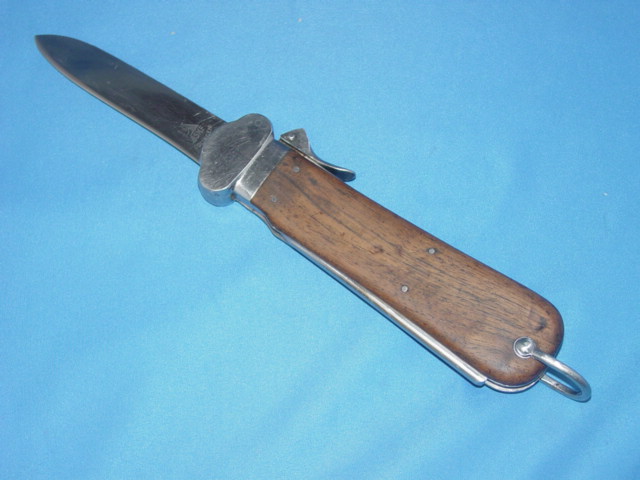
The knife displayed here was manufactured by SMF. The
logo
of the manufacturer is etched
at the base of the blade. The design consists of the figure of a king holding a sword,
just below are the initials of the company followed by the name of the city where the
knife was produced, Solingen.
The city of Solingen was well known for producing a large percentage of knives during
the Nazi era.
|
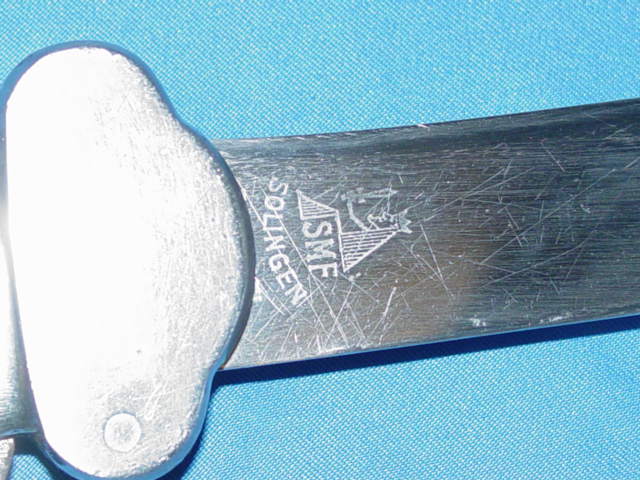 |
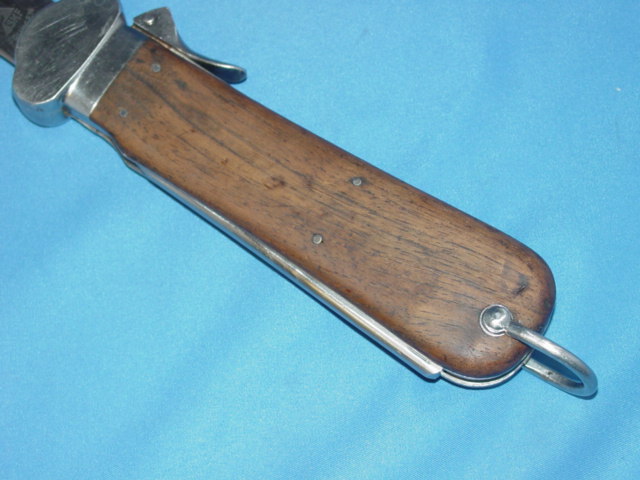 |
|
This page is a recognition and identification guide for German bayonets. Multiple
detailed photos of a specific sample are provided. Descriptions point out specific
points that should be noted.
One of the most commonly asked questions is "How much is my German bayonet worth?".
A price guide is included here to address this question. The value of the Nazi bayonets is
reviewed over a period of several years. A trend can be observed. The present worth
of the police sword in the collector's market is illustrated.
This service is provided free of charge to the visitor/enthusiast courtesy of
MilitaryItems.com,
a company dedicated
to the preservation of military history and to providing quality military antiques and
collectibles to museums, institutions and the general public.
|
|
|
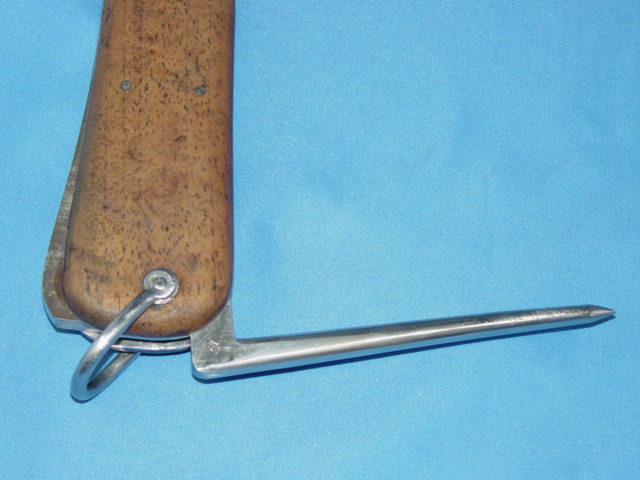
The knife had a a pick that could be pulled out from the opposite side of the blade.
The base of the pick has a marking
that consisted of the shape of an eagle with a number 5 inside it.
|
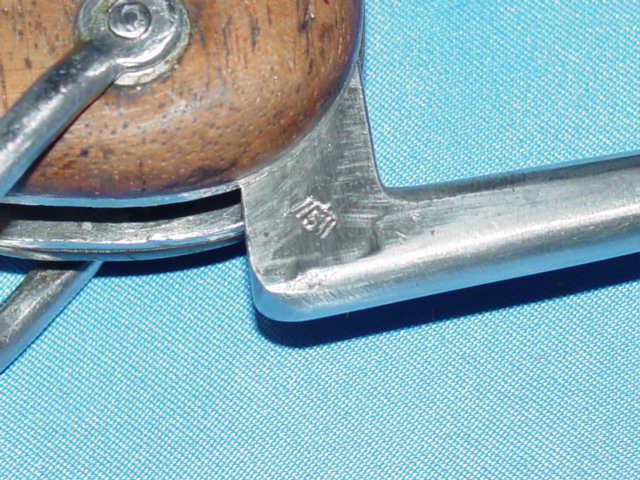 |
The spine of the knife is known as the "Spring". This part controls the gravity operation of the knife. Unfortunatelly
the material used to manufacture these edge weapons was not very durable. Hence it is common for the spring to break
causing an interruption in the fluidity of the mechanism.
If the spring breaks several things may occur. The blade may move freely in and out of the casing as the opening
is pointed up or down, The blade may not remain in the open position, etc.
At this point in time I am not aware of a way to fix the spring if it breaks. It is recommended that the knife
not be opened and closed excessively to mitigate the possibility of this happening.
|
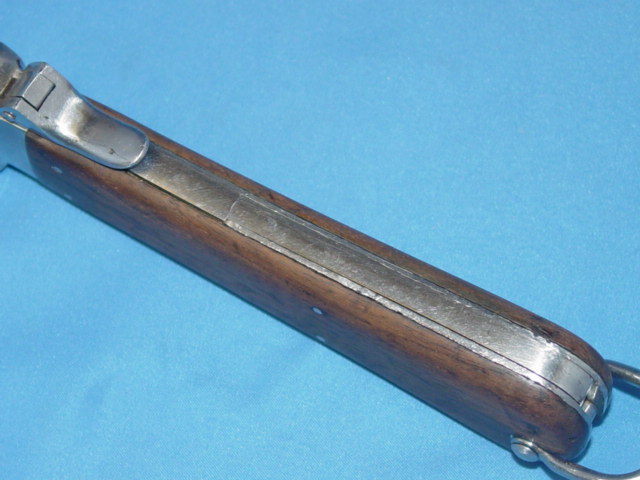 |
Many German edge weapons are currently
reproduced.
It is becoming more difficult to be able to tell the fake ones from the real ones because
the quality of the reproductions is improving. The collector must become familiarized with
the construction style and materials employed in the manufacturing of this item.
Attention to the details is critical in order to be able to determine the authenticity of
the collectible.
If you have an interest is seeing other edge weapons of the Third Reich, you can do so by going
to our
WWII German daggers and Swords
identification guide, Where we cover blades from the Heer (Army), Navy (Kriegsmarine), Air Force
(Luftwaffe) and other organizations.
|







